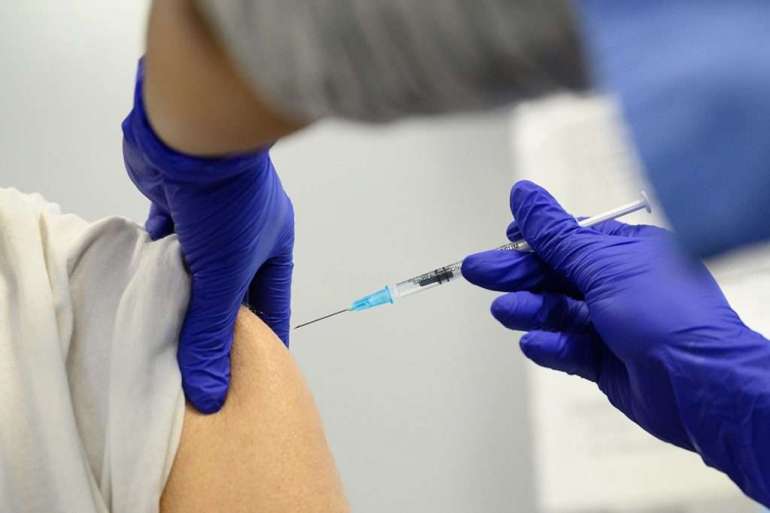CDC chief approves Covid-19 boosters for all adults

The CDC’s independent vaccine advisers had voted 11-0 to allow all adults to get Covid-19 boosters of Pfizer and Moderna shots.
The panel said that all American adults “may” opt for a booster depending on their individual benefits and risks, while those 50 and older “should” get boosted. The wording difference acknowledges the practicality of an age-based recommendation while also recognizing the thin data on the benefits of boosting young and otherwise healthy adults.
The previous federal booster recommendations covered anyone 65 and older, adults with certain underlying health conditions and adults whose jobs increase their chances of contracting or spreading Covid, as long as all were at least six months removed from their second doses. People who’d received the Johnson & Johnson vaccine were eligible for any of the boosters at least two months after inoculation.
The new recommendations are intended to address what many states have said when leapfrogging the federal government on booster access: Earlier criteria were so confusing that even eligible individuals weren’t scheduling their shots.
“The pursuit of precision creates confusion,” said Nirav Shah, the head of Maine’s Center for Disease Control and Prevention.
Even the CDC’s list of underlying conditions that could make Covid more dangerous has changed in the last few weeks, with the agency adding former smokers and those with mood disorders to at-risk groups.
“I’m not sure I can keep up with who’s eligible and who’s not eligible,” said Grace Lee, the advisory committee chair.
One of the biggest issues the CDC panel has weighed in the last five months has been the association between an inflammatory heart condition known as myocarditis and the two messenger RNA vaccines from Pfizer and Moderna. The side effect, while rare, has predominantly affected adolescent and young adult males under 30 and was the driving factor in its and FDA’s own advisory panel’s efforts to limit boosters to only older and sicker Americans.
FDA and CDC advisers were reluctant to green-light boosters for all adults in September when first presented with the request from Pfizer. They pushed back on allowing the doses for 16- and 17-year-olds, who were already eligible for the adult dosage, because of the lack of safety data, and they’ve generally been averse to recommending extra doses for young and otherwise healthy people.
But the seven-day moving average of Covid-19 cases has jumped 21 percent over the last two weeks, and some states are openly fretting that their hospital systems may soon be overrun with cases around the holidays. Some Biden health officials believe the upward trend could have been squashed if more people had gotten their booster shots sooner.
Pfizer didn’t report any cases of myocarditis observed in its booster trial, but the CDC vaccine safety team’s Tom Shimabukuro said the agency has received 54 preliminary reports of myocarditis or pericarditis in people who received boosters, 12 of which have been confirmed.
That population reflects the population eligible for boosters, Shimabukuro said, so they’re older adults rather than the adolescents and young people that have dominated cases of the inflammation after the second messenger RNA vaccine dose. Because of that, he said, it’s too soon to draw conclusions about the prevalence of myocarditis after booster administration.
While evidence is growing that Moderna’s primary vaccine series poses a greater risk for myocarditis than Pfizer’s, the Moderna booster dose is half the size of the first two doses administered in the series, raising the question of whether that smaller amount is correlated to a lower risk for the adverse event.
Lee acknowledged that some think the advisory committee hasn’t moved quickly enough to make vaccine recommendations but noted that Friday’s meeting was the 22nd public deliberation on Covid inoculations, a process she said is even more important during a pandemic to cultivate public trust.
Earlier in the day, Colorado Democratic Gov. Jared Polis, who’s often criticized FDA and CDC for seemingly slow-walking booster and pediatric vaccine decisions, panned the process once again.
“While it has been frustrating to watch an unelected board delay necessary boosters for Americans, today I’m glad to see the FDA finally take the right step forward in further protecting all Americans from COVID-19,” he said in a statement.
The CDC panel’s Friday decision raises yet another question: When will they revise the recommendation to strongly urge all adults down to age 18 to get boosted?
“I feel like we’ve had a moving goal post here,” said committee member Lynn Bahta of the Minnesota Department of Health.